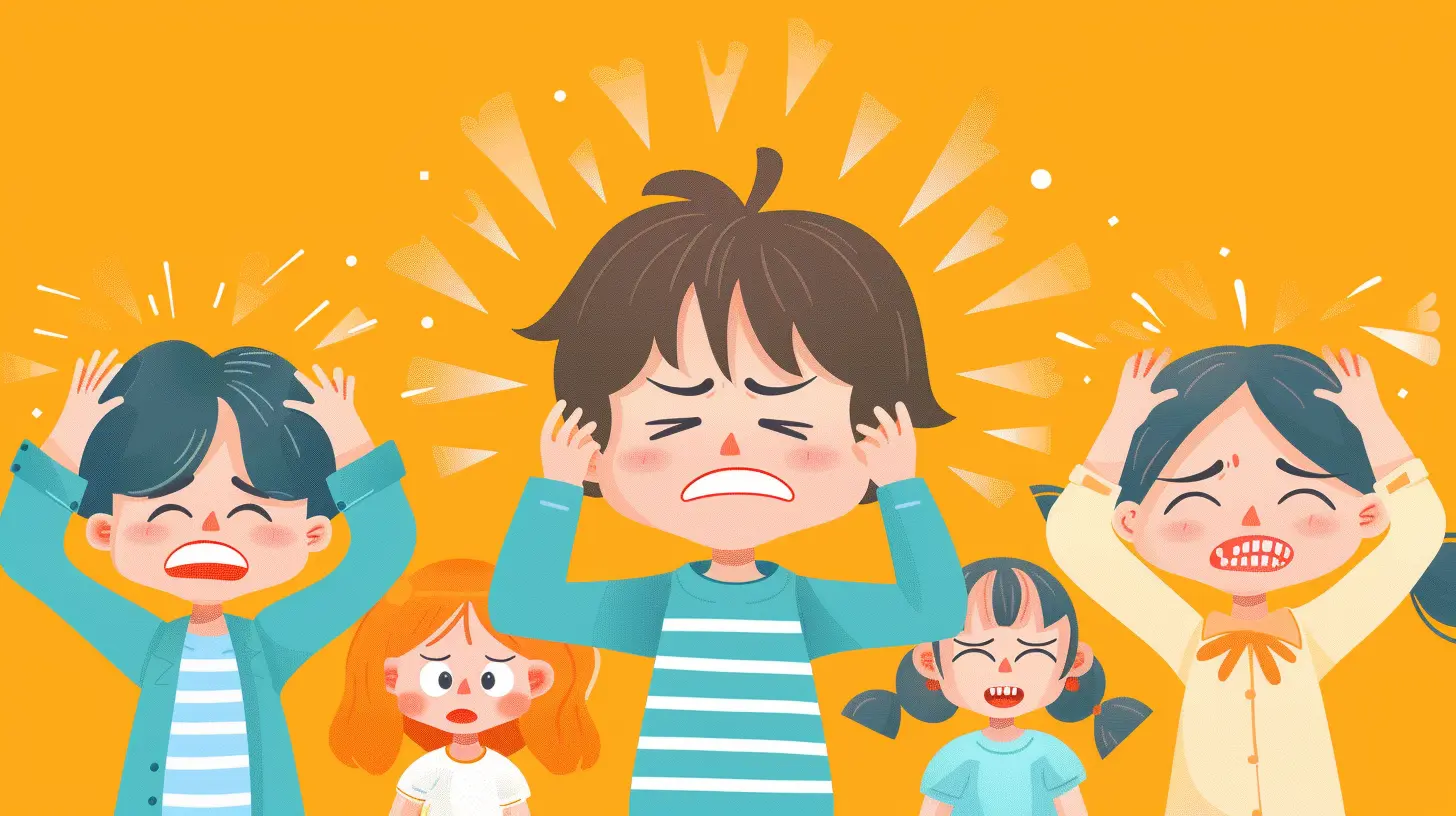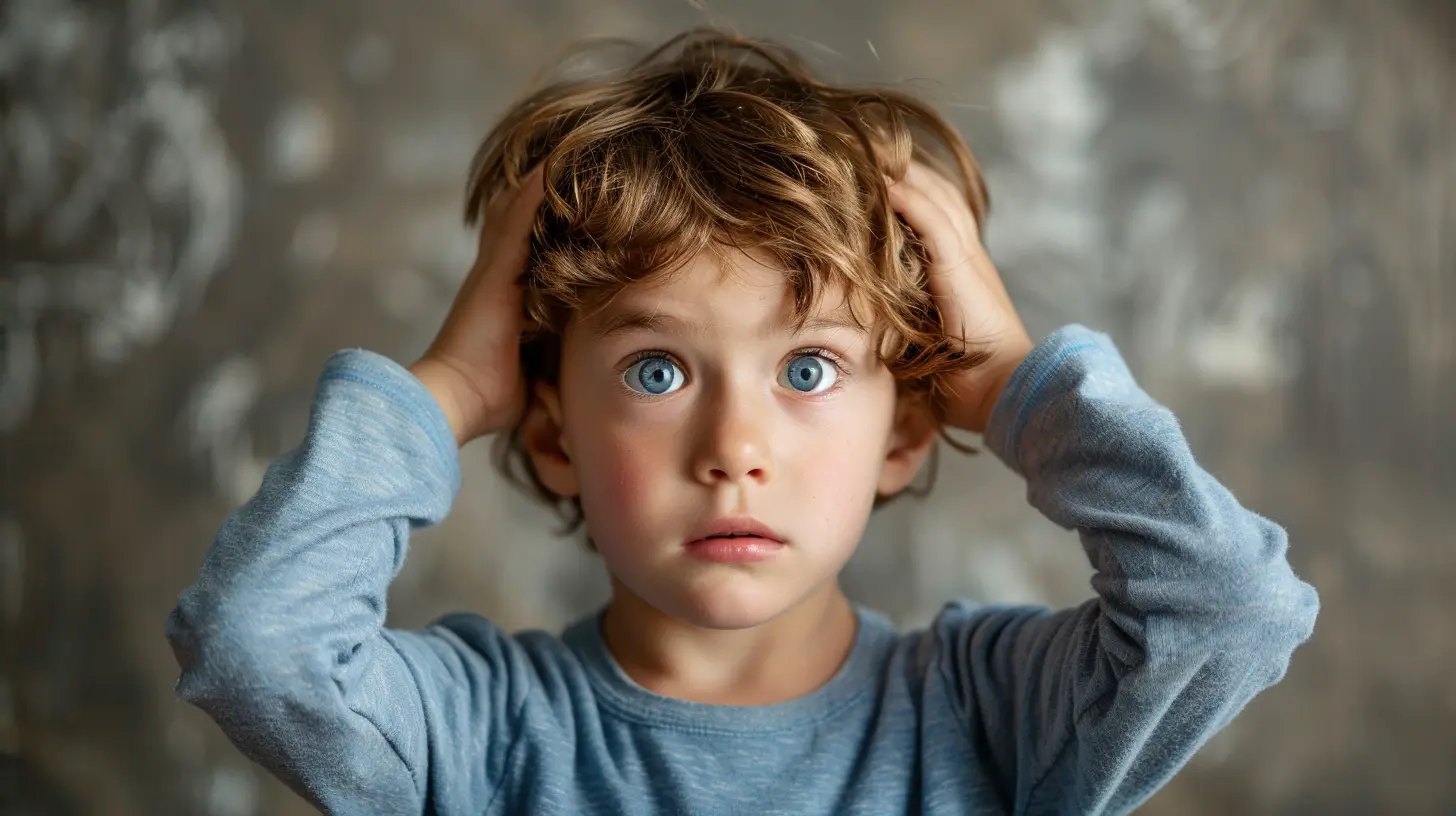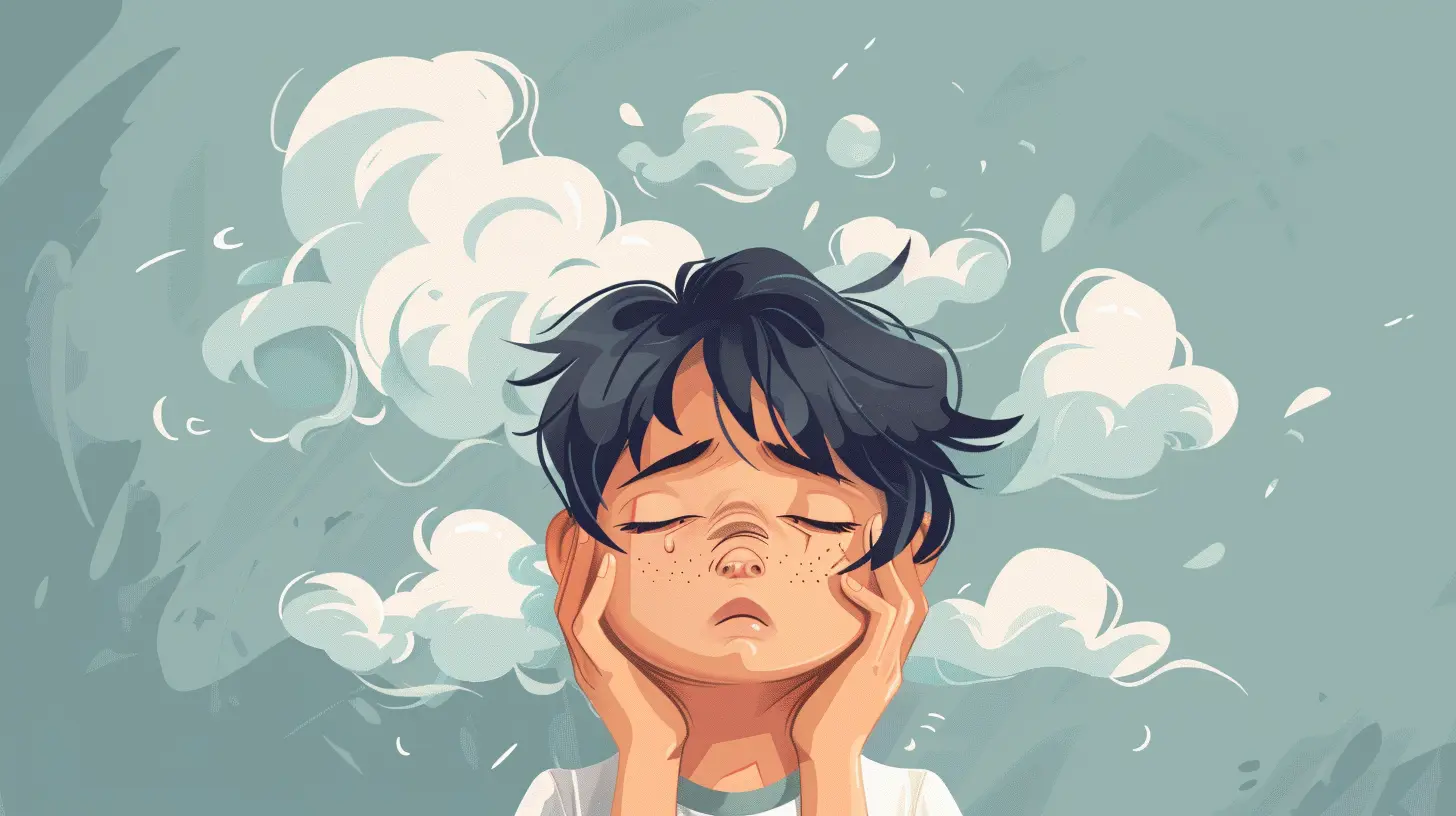Mental Health Safety: Recognizing Signs of Stress in Children
20 September 2025
Parenting is like trying to juggle flaming torches while riding a unicycle—on a tightrope. It's chaotic, unpredictable, and there’s always a strong chance something will catch fire (probably your patience). But amidst the madness, one thing we often overlook is our kids’ stress levels.
Yes, kids get stressed too! And no, it’s not just about their favorite crayon breaking in half or losing at hide-and-seek (though, let's be honest, that can be devastating). Children's stress is real, and as parents, it's our job to recognize the signs before they turn into full-blown meltdowns or long-term emotional struggles.
Let’s dive into the not-so-obvious (and totally obvious) signs that your child might be dealing with stress—and what you can do about it.

Why Stress in Kids is a Big Deal
Sure, we all wish we had childhood problems like arguing over who gets the biggest slice of cake. But the reality is, kids today deal with a lot more than they let on. School pressure, social anxiety, family changes, and even that sneaky little villain called screen time addiction can make their young minds feel like they’re running a marathon—except no one told them where the finish line is.And because kids don’t exactly schedule “mental health check-ins” with us, we’ve got to be the detectives here.

Sneaky Signs of Stress in Children
Stress in kids isn’t always obvious. They won’t always say, “Mom, Dad, I am feeling overwhelmed by the burdens of early childhood.” (Wouldn’t that be convenient?) Instead, stress shows up in weird, sneaky ways that parents often brush off as just "kids being kids."1. Mood Swings That Rival a Teenager’s
One minute they’re giggling uncontrollably over a joke about farts, and the next, they’re crying because their sock “feels weird.” Sound familiar? While mood swings are normal, extreme changes in behavior—especially increased irritability, outbursts, or constant frustration—can be a sign that your child is emotionally overloaded.2. Sleep Struggles (Cue the Midnight Monster Fear)
If bedtime has suddenly turned into World War III, stress might be the culprit. Kids dealing with stress may have trouble falling asleep, staying asleep, or waking up feeling unrested. Sure, sometimes it’s just nightmares about that creepy doll from Grandma’s house, but frequent sleep disturbances can signal that their minds are on overdrive.3. Changes in Appetite (A.K.A. The Snack Roller Coaster)
Has your little one suddenly become a bottomless pit of snack cravings—or, on the flip side, rejected their usual favorites? Stress can mess with their tiny tummies. Some kids eat more as a coping mechanism, while others lose their appetite altogether. Both extremes are worth paying attention to.4. Physical Complaints Without a Clear Cause
“I have a headache.”“My tummy hurts.”
“My left pinky feels funny.”
Kids often express emotional stress through physical symptoms—especially if they haven’t yet mastered the whole “let’s talk about feelings” thing. If your child frequently complains about stomachaches, headaches, or any mystery ailments that don’t seem to have a medical cause, stress could be the invisible monster behind it.
5. Withdrawal from Favorite Activities (Red Flag Alert!)
Did your Lego-loving kid suddenly abandon their prized creations? Did the champion of pretend play suddenly stop forcing you to be the evil dragon in their imaginary kingdom? A loss of interest in activities they normally love is a serious warning sign that something’s off in their little world.6. Clinginess or Social Avoidance
Some kids react to stress by turning into tiny koalas, latching onto you like their life depends on it. Others go the opposite direction and withdraw from social interactions, suddenly avoiding friends and preferring to be alone. Both can signal emotional distress.7. Trouble Concentrating (AKA Homework Battles Galore)
If your kid, who normally cruises through math homework, suddenly can’t focus for more than two seconds, stress could be hijacking their brain. Difficulty concentrating or struggling with schoolwork can be a major red flag.8. More Frequent Tantrums or Outbursts
We expect tantrums from toddlers, but if your usually composed child starts throwing fits over literally everything, don’t just chalk it up to “bad behavior.” When kids don’t have the words to express their feelings, stress often comes out as frustration, aggression, or emotional meltdowns.
What’s Causing All This Stress?
Now that we’ve played detective, it’s time to figure out what’s causing the stress in the first place. Here are some of the biggest stress triggers for kids:- School pressure – Tests, homework, and the general need to impress Ms. Johnson in math class.
- Family changes – Divorce, moving houses, or a new sibling (a.k.a. “the loud competition for attention”).
- Social struggles – Friendship drama, bullying, or just the general chaos of playground politics.
- Overloaded schedules – Between soccer, violin lessons, and ninja training (ok, maybe just soccer), overscheduling can lead to burnout.
- Screen time overload – Too much screen time can mess with their little brains and add to social comparison stress.
- Parental stress – Yep, kids pick up on our stress like tiny emotional sponges.

How to Help Your Stressed-Out Kiddo
Okay, so your child is stressed. Now what? Just telling them, “Don’t worry, be happy!” isn’t exactly groundbreaking parenting advice. But here are some real things you can do to support them:1. Open the “Feelings” Door Without Forcing It
Kids aren’t always great at talking about emotions. Instead of asking vague questions like, “Are you okay?” (which will almost always get a “Yeah” as a response), try:- “You seem upset today. Want to tell me what’s on your mind?”
- “What was the best and worst part of your day?”
- “You’ve been really quiet lately—do you want to talk?”
These open-ended questions give them a chance to ease into sharing their thoughts.
2. Create a No-Stress Zone
Set aside time each day where there’s zero pressure—no homework, no chores, just a calm, fun, stress-free space. Whether it’s playing their favorite game, snuggling up with a book, or building a fort, this little oasis can make a huge difference.3. Cut Back on Overloading Their Schedule
If your kid’s calendar looks busier than a CEO’s, it’s time to rethink their activities. Let them have down time—unstructured, free play is actually essential for mental well-being.4. Encourage Physical Activity
Exercise is nature’s stress reliever. Even a simple walk, dance-off in the living room, or trip to the park can help them release all that bottled-up energy and tension.5. Help Them Develop Coping Skills
Teach your child healthy ways to handle stress, like:- Deep breathing exercises (“Smell the flowers, blow out the candles”)
- Creative outlets (Drawing, music, journaling—even if it’s just scribbling.)
- Mindfulness games (Like the “5-4-3-2-1” grounding technique.)
6. Model Calmness (Even When You Want to Scream Into a Pillow)
Kids absorb stress like little sponges. If they see you managing stress in a healthy way, they’ll pick up on those habits. No pressure, but you’re basically their life coach.Final Thoughts
Parenting is hard. Kids are emotional mystery boxes. And stress? It’s an inevitable part of life. But by staying tuned into the sneaky signs of stress, we can help our little humans navigate their feelings in a healthy way. The goal isn’t to eliminate stress altogether (impossible), but to equip them with the tools to handle it like the mini superheroes they are.So next time your kid melts down because their pancake “isn’t the right shape,” take a deep breath—and maybe check in on what’s really going on behind the scenes. Because sometimes, it’s about more than just pancakes.
all images in this post were generated using AI tools
Category:
Child SafetyAuthor:

Liam Huffman
Discussion
rate this article
1 comments
Wyatt McElhinney
Great article! Remember, noticing stress in our kids is the first step to helping them thrive. You’ve got this—parenting is a journey, not a race!
October 7, 2025 at 2:45 AM

Liam Huffman
Thank you! I completely agree—awareness is key in supporting our kids. Let's embrace the journey together!


